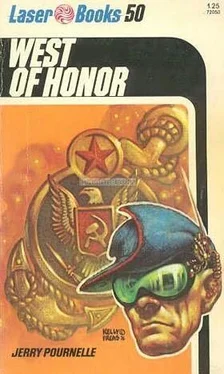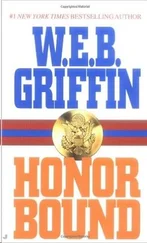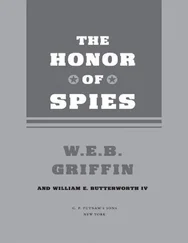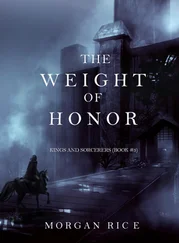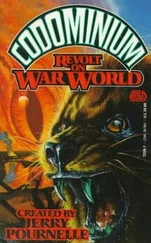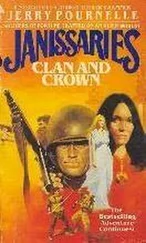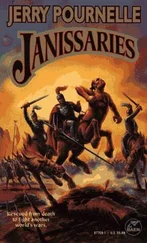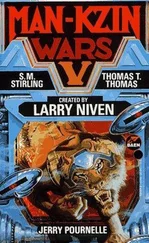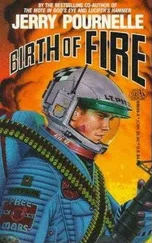Jerry Pournelle - West of Honor
Здесь есть возможность читать онлайн «Jerry Pournelle - West of Honor» весь текст электронной книги совершенно бесплатно (целиком полную версию без сокращений). В некоторых случаях можно слушать аудио, скачать через торрент в формате fb2 и присутствует краткое содержание. Жанр: Фантастика и фэнтези, на английском языке. Описание произведения, (предисловие) а так же отзывы посетителей доступны на портале библиотеки ЛибКат.
- Название:West of Honor
- Автор:
- Жанр:
- Год:неизвестен
- ISBN:нет данных
- Рейтинг книги:3 / 5. Голосов: 1
-
Избранное:Добавить в избранное
- Отзывы:
-
Ваша оценка:
- 60
- 1
- 2
- 3
- 4
- 5
West of Honor: краткое содержание, описание и аннотация
Предлагаем к чтению аннотацию, описание, краткое содержание или предисловие (зависит от того, что написал сам автор книги «West of Honor»). Если вы не нашли необходимую информацию о книге — напишите в комментариях, мы постараемся отыскать её.
West of Honor — читать онлайн бесплатно полную книгу (весь текст) целиком
Ниже представлен текст книги, разбитый по страницам. Система сохранения места последней прочитанной страницы, позволяет с удобством читать онлайн бесплатно книгу «West of Honor», без необходимости каждый раз заново искать на чём Вы остановились. Поставьте закладку, и сможете в любой момент перейти на страницу, на которой закончили чтение.
Интервал:
Закладка:
Jerry Pournelle
West of Honor
PROLOGUE
2064 A.D.
The sun was orange red and too bright, and the gravity was too low, but Kathryn Malcolm didn't know that. She had lived all of her 16 years on Arrarat, and although her grandfather talked a lot about Earth, humanity's home was not a real place to her. Earth was a place of machines and concrete roads and automobiles and great cities, where people lived crowded together far from the land. When she thought about it, Earth seemed an ugly place, not fit for people to live on.
Kathryn wondered how it smelled. Certainly it would be different from Arrarat. She inhaled deeply, filling her lungs with the smell of newly turned, black, rich soil. Arrarat's soil was good. It felt right beneath her feet. Dark and crumbly, moist enough to take hold of the seeds and nurture them, but not wet and full of clods: perfect for the late-season crop she was planting.
Kathryn walked steadily behind the plow. She used a long whip to guide the oxen, flicking it to the side of the leaders, but never hitting them. There was no reason to hit them. Horace and Star knew what she wanted. The whip guided them in the precise path that would plow the field in a spiral out from the center. The plow turned the soil inward so that the center of the field would be slightly higher than the edges. That helped drain the fields and made it easier to harvest two crops every year.
The early harvest was already in the stone barn two kilometers away. Wheat and corn, both natural strains- or so Kathryn thought, although in fact genetic engineers had developed them for Arrarat-and in another part of the barn was a room filled with breadfruit melons, which were native to Arrarat. There would be plenty to eat during the short winter, and enough left over to sell in town. Kathryn's mother had promised to buy a bolt of printed cloth so that Kathryn could make a new dress to wear for Emil.
At the moment, though, she wore coveralls and high boots, and she was glad that Emil couldn't see her. He should know that she could plow as straight a furrow as any man, and that she could ride better than her brother. He should know that, so he would realize she was not one of the useless women who do nothing but look pretty; but knowing it and seeing her with her face dirty and sweat in her hair were two different things, and she wanted him to see her only when she was dressed for him. She laughed at herself when she thought this, but it didn't stop the thoughts.
She twitched the whip to move the lead oxen slightly outward. The beasts took very little attention. They were nearly as intelligent as dogs and almost as anxious to please their mistress. She liked the way their muscles rippled in the bright sun and the way their tails twitched in unison whenever the small gnats came around. The oxen had plowed dozens of fields now and knew what was wanted. The second pair in the string had never even pulled a wagon across the plains.
Kathryn decided she couldn't put off their training. Those two would come with her when she married, and Emil might not want to live with Kathryn's grandfather. He certainly did not want to live on his father's land, although there was more than enough, 1000 hectares of land and more.
Perhaps, she thought, we will take my grandfather's extra wagon and hitch the oxen to it. If we find more settlers we can all go to a place so far away that the convicts will never find us; and the city will be a place to see once in a lifetime if anyone wants to. It was exciting, but she would hate to leave this valley and the land she had grown up on.
The field lay among low hills. A small stream meandered along one edge. It might have been on Earth except for the bright sun that was too orange. The crops and trees she could see had come from Earth as seeds. Most crop eaters preferred to leave Earth plants alone, especially if the fields were bordered with spearleaf blue and Earth marigolds, which insects did not like at all.
She thought of the things they would need if they struck out west to found a new settlement. Seeds would be no problem, and her grandfather had plenty of breeding stock they could take. Two mares and a stallion would do for horses. Six oxen, and chickens, and swine; yes, there were animals to spare, and there were her father's blacksmith tools she could have. But they would need a television, and those were rare. A television, and solar cells, and a generator for the windmill; those would take money. They had to be bought from the city.
But we will get them, she thought. We will need them. Children should not go without education. Television was not for entertainment. The programs broadcast by satellite gave weather reports and taught ecology, engineering and metalworking. They taught reading and mathematics. Most of Kathryn's neighbors despised television and wouldn't have it in their houses, but their children had to learn from others who watched the screen.
And yet, Kathryn thought, there's cause for their concern. First it's television. Then industry. Mines. She thought of Arrarat covered with cities and concrete, the animals replaced by automobiles and tractors, small villages grown into cities with people packed together the way they were in Harmony, streams dammed and lakes dirty with sewage, and she shuddered. Not in my time, or my grandchildren's. And maybe we'll be smarter than Earth's people were, and it will never happen. We know better, now. We know how to live with the land.
Her grandfather had been a volunteer colonist, an engineer with enough money to bring tools and equipment to Arrarat and he was trying to show others how to live with technology. He had a windmill for electricity. It furnished power for the television and the radio. He had radio communications with Dennisburg, 40 kilometers away, and although the neighbors said they despised all technology, they were not too proud to ask Amos Malcolm to send messages for them.
The Malcolm farm had running water and an efficient system for converting sewage to fertilizer. To Amos, technology was something to be used so long as it did not use you, and he tried to teach his neighbors that.
The phone buzzed, and Kathryn halted the team. The phone was in the center of the plowed land. It was plugged into a portable solar reflector that recharged its batteries. There were very few radio-phones in the valley. They cost a great deal and could be bought only in Harmony. Even Amos couldn't manufacture his own microcircuits, although he kept muttering about buying the proper tools and developing a method for making something as good. "After all," he kept saying, "we do not need the very latest. Only something that will do."
Before she reached the phone, Kathryn heard gunshots. They sounded far away, from the direction of her home. She looked toward the hill that hid the ranch from her, and a red trail streaked upward toward the sky. It exploded in a cloud of bright smoke. Amos had sent up a distress rocket.
"No!" Kathryn screamed. She ran for the phone, and dropped it in her haste. She scrabbled it up from the freshly plowed dirt and shouted into it. "Yes!"
"Go straight to the village, child," her grandfather's voice told her. He sounded very old and tired. "Do not come home. Go quickly."
"Grandfather-"
"Do as I say! The neighbors will come, and you cannot help."
"But-"
"Kathryn." The voice sounded very old and tired. "They are here. Many of them."
"Who?" she demanded.
"Convicts. They claim to be sheriffs, executing a writ for collection of taxes. I will not pay. My house is strong, Kathryn. They may not get in, but if they kill me it does not matter-"
"And mother!" Kathryn shouted.
"They won't take her alive," Amos Malcolm said. "We've talked about this, and you know what I'll do. Please. Don't make my whole life meaningless by letting them get you as well. Go to the village, and God go with you. I have to fight now."
Читать дальшеИнтервал:
Закладка:
Похожие книги на «West of Honor»
Представляем Вашему вниманию похожие книги на «West of Honor» списком для выбора. Мы отобрали схожую по названию и смыслу литературу в надежде предоставить читателям больше вариантов отыскать новые, интересные, ещё непрочитанные произведения.
Обсуждение, отзывы о книге «West of Honor» и просто собственные мнения читателей. Оставьте ваши комментарии, напишите, что Вы думаете о произведении, его смысле или главных героях. Укажите что конкретно понравилось, а что нет, и почему Вы так считаете.
